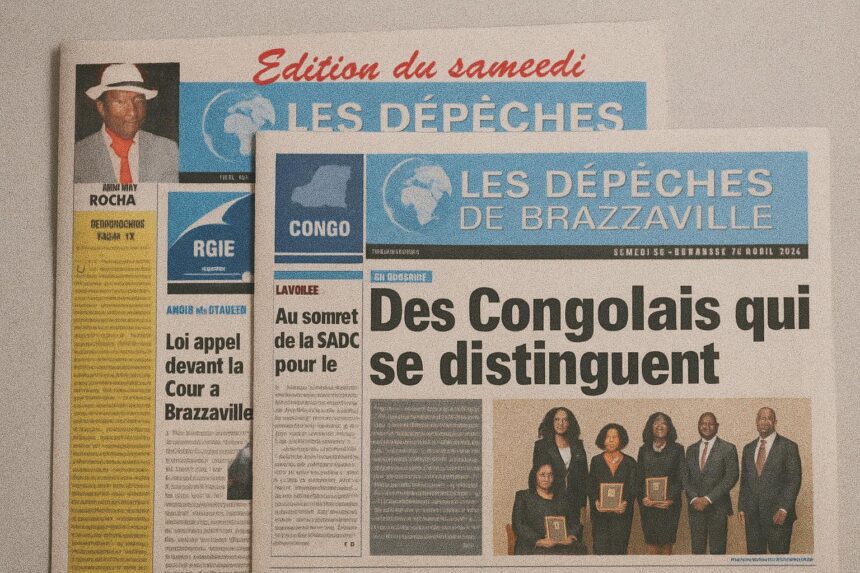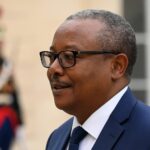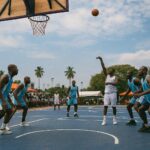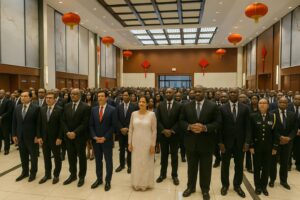European kick-off carries diplomatic undertones
As the European football calendar restarts, a thin yet significant Congolese vanguard is writing a narrative that transcends sport. Fixtures in Bulgaria, Latvia and Serbia seldom feature in the global spotlight, yet for Brazzaville the presence of national team hopefuls represents a calibrated projection of soft power, offering an unobtrusive showcase of talent, discipline and national identity on foreign turf.
- European kick-off carries diplomatic undertones
- Sofia stalemate blends resilience with caution
- Latvian rebound underscores mental fortitude
- Serbian efficiency signals upward trajectory
- Diaspora talent as an instrument of soft-power
- Synergy with national development strategies
- Balancing performance metrics with public expectations
- Measured optimism as the season unfolds
Sofia stalemate blends resilience with caution
Lokomotiv Sofia’s opening draw against Cherno More in the Bulgarian First League, corroborated by match data released by the Bulgarian Professional Football League, was shaped as much by absences as by tactics. Defenders Messie Biatoumoussoka and Ryan Bidounga, sidelined through minor muscular setbacks confirmed by the club’s medical communiqués, were conspicuous for their strategic importance to Lokomotiv’s compact back line. Local analysts on BNT Sport remarked that the Congolese pair had impressed during pre-season until a late friendly against Petah Tikva. Their temporary withdrawal, however, offered a quiet reminder that Brazzaville’s export of footballing labour is now underpinned by professional medical supervision and transparent communication, features once sporadic among clubs in Eastern Europe.
Latvian rebound underscores mental fortitude
Farther north, FK Daugavpils recovered from continental elimination by defeating FK Auda 3-1 in the Virslīga’s 23rd round, a result validated by the Latvian Football Federation’s official report. Central defender Ceti Taty Tchibinda marshalled a youthful back four with composure praised in the regional daily Latgales Laiks. Observers noted that his aerial authority stifled Auda’s set-piece strategy. In Liepāja, the narrow 2-3 home defeat to Riga FC left Trésor Samba an unused substitute, yet coaching staff quoted in Postimees insisted his versatility would remain crucial as the Baltic campaign intensifies. Such discourse illustrates how Congolese professionals are no longer peripheral figures but integral to tactical planning and post-match analysis in their adopted leagues.
Serbian efficiency signals upward trajectory
In Serbia’s top flight, TSC Bačka Topola’s 2-1 victory over Radnički, confirmed by SuperLiga’s digital bulletin, owed much to the industrious wing play of Prestige Mboungou, who completed the full ninety minutes. Serbian outlet Sportski Žurnal highlighted his off-the-ball movement as a decisive factor in stretching Radnički’s defensive block. The performance resonates with Congo’s recent emphasis on developing multi-functional forwards capable of transitioning swiftly between national team duties and club responsibilities, a vision articulated by Congolese Football Federation officials during May’s technical symposium in Brazzaville.
Diaspora talent as an instrument of soft-power
These seemingly modest fixtures deliver reputational dividends for Brazzaville. Each professional contract represents a bilateral micro-channel that fosters cultural familiarity, facilitates the exchange of coaching methodologies and, according to diplomatic sources at the Congolese embassy in Belgrade, periodically opens doors for broader cultural initiatives. The government’s sports and youth ministry has quietly backed this approach, framing football as an affordable, high-visibility vector of public diplomacy that avoids the polarising optics of overt political campaigns.
Synergy with national development strategies
Domestically, the presence of overseas-based players dovetails with the national development plan unveiled in March, which prioritises human capital formation and the circulation of technical expertise. Partnerships signed with training centres in Novi Sad and Liepāja include provisions for coaching internships for Congolese graduates, a detail confirmed by officials attending the Brazzaville-Belgrade cooperation forum. Such exchanges aim to deepen tactical literacy within the national youth system while maintaining the President’s stated objective of positioning sports as a vector of unity and social mobility.
Balancing performance metrics with public expectations
Expectations at home, however, remain realistic. With the African Cup of Nations qualifiers looming, technical director Barthélemy Ngatsongo, interviewed on Télé Congo, cautioned that consistent minutes in competitive European environments are a more reliable indicator of readiness than occasional flashes in larger leagues. The week-end’s outcomes, though mixed, provide valuable data points for selection committees increasingly reliant on performance analytics rather than anecdotal reputation. This methodological shift aligns Congo-Brazzaville with best practices advocated by FIFA’s Technical Study Group.
Measured optimism as the season unfolds
A single week-end will not redefine Congo’s sporting fortunes, yet it gestures toward a steady, incremental strategy that refrains from grandiose proclamations. By embedding skilled professionals in diverse European ecosystems, Brazzaville cultivates goodwill, hones competitive edge and subtly amplifies its international profile. The trajectory of Biatoumoussoka, Tchibinda, Mboungou and their peers will be monitored with the quiet intensity typical of diplomatic dossiers, where long-term credibility is earned through meticulous, often understated, performance.





















